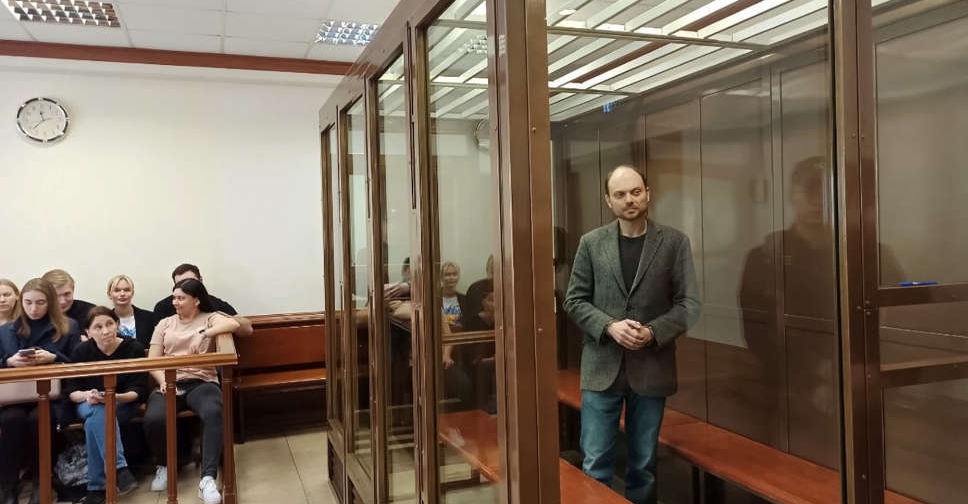
Outspoken Kremlin critic Vladimir Kara-Murza was jailed for a quarter of a century by a Moscow court on Monday, the harshest sentence of its kind since Russia invaded Ukraine, after it found him guilty of treason and other offences he denied.
Kara-Murza, 41, a father of three and an opposition politician who holds Russian and British passports, spent years speaking out against President Vladimir Putin and lobbied Western governments to impose sanctions on Russia and individual Russians for purported human rights violations.
State prosecutors, who had requested the court jail him for 25 years, had accused him of treason and of discrediting the Russian military after he criticised what Moscow calls its "special military operation" in Ukraine.
In a CNN interview broadcast hours before he was arrested, Kara-Murza had alleged that Russia was being run by a "regime of murderers". He had also used speeches in the United States and across Europe to accuse Moscow of bombing civilian targets in Ukraine, a charge it has rejected.
In his final speech to the court last week, Kara-Murza had compared his own trial, which was held behind closed doors, to Josef Stalin's show trials in the 1930s and had declined to ask the court to acquit him, saying he stood by and was proud of everything he had said.
"Criminals are supposed to repent of what they have done. I, on the other hand, am in prison for my political views. I also know that the day will come when the darkness over our country will dissipate," he had said.
Shortly after sending tens of thousands of troops into Ukraine in February last year, Russia introduced sweeping wartime censorship laws, which have been used to silence dissenting voices across society.
"Discrediting" the army can currently be punished by up to five years in prison, while spreading deliberately false information about it can attract a 15-year jail sentence.
Twice, in 2015 and 2017, Kara-Murza fell suddenly ill in what he said were poisonings by the Russian security services, on both occasions falling into a coma before eventually recovering.
Russian authorities denied involvement in the incidents. Kara-Murza's lawyers say that as a result, he suffers from a serious nerve disorder called polyneuropathy.




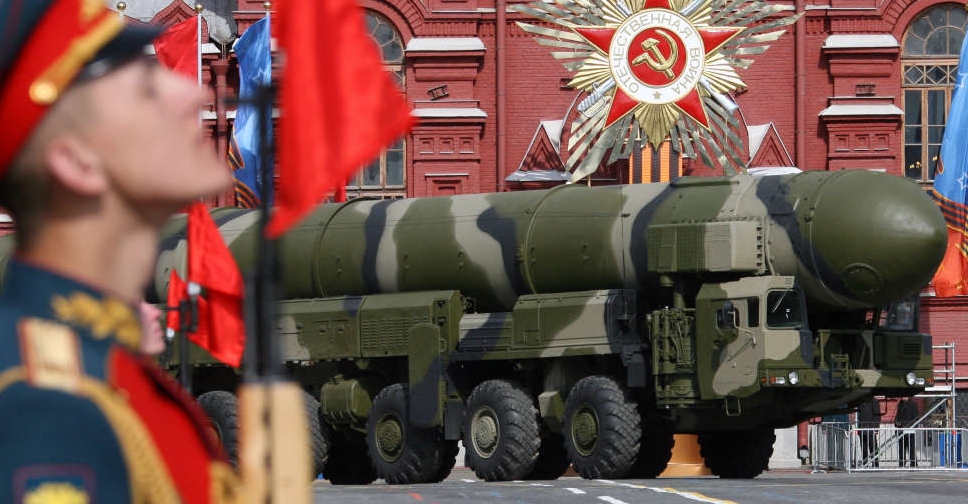 UN chief calls New START treaty expiration 'grave moment'
UN chief calls New START treaty expiration 'grave moment'
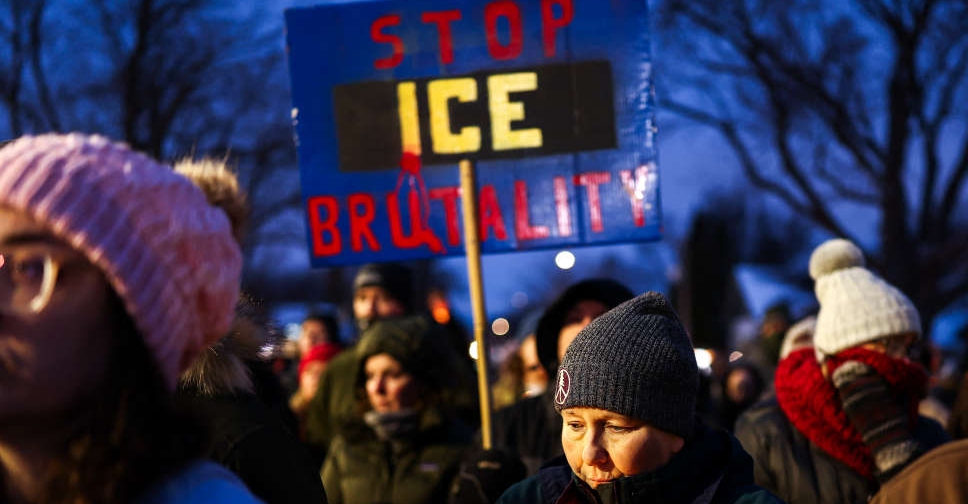 700 immigration agents withdrawn from Minnesota
700 immigration agents withdrawn from Minnesota
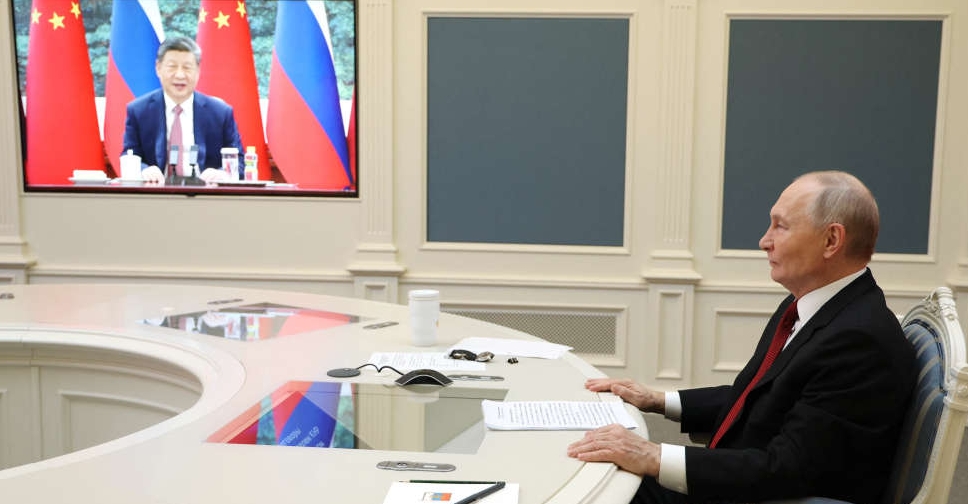 Xi, Putin hail ties in video call as Ukraine war nears anniversary
Xi, Putin hail ties in video call as Ukraine war nears anniversary
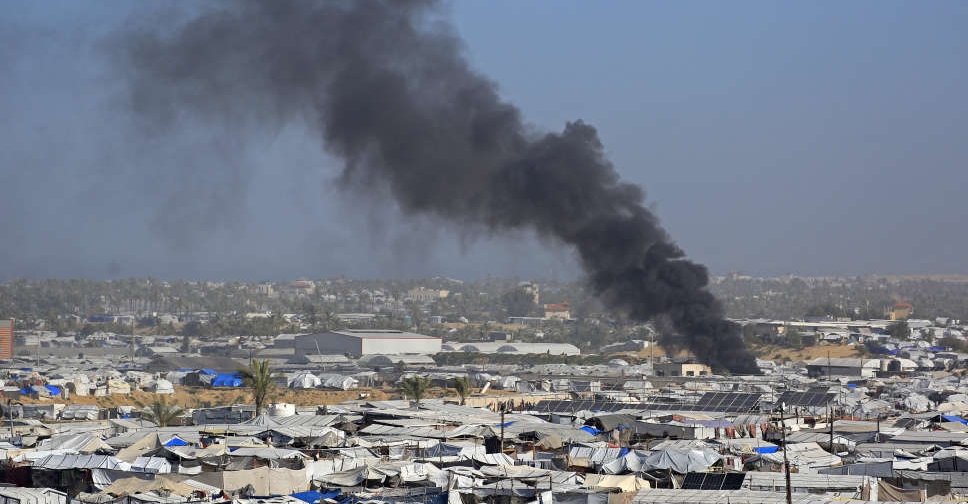 Israeli strikes kill 21 in Gaza, health officials say
Israeli strikes kill 21 in Gaza, health officials say
 Nestle widens infant formula recall after France lowers toxin level
Nestle widens infant formula recall after France lowers toxin level







